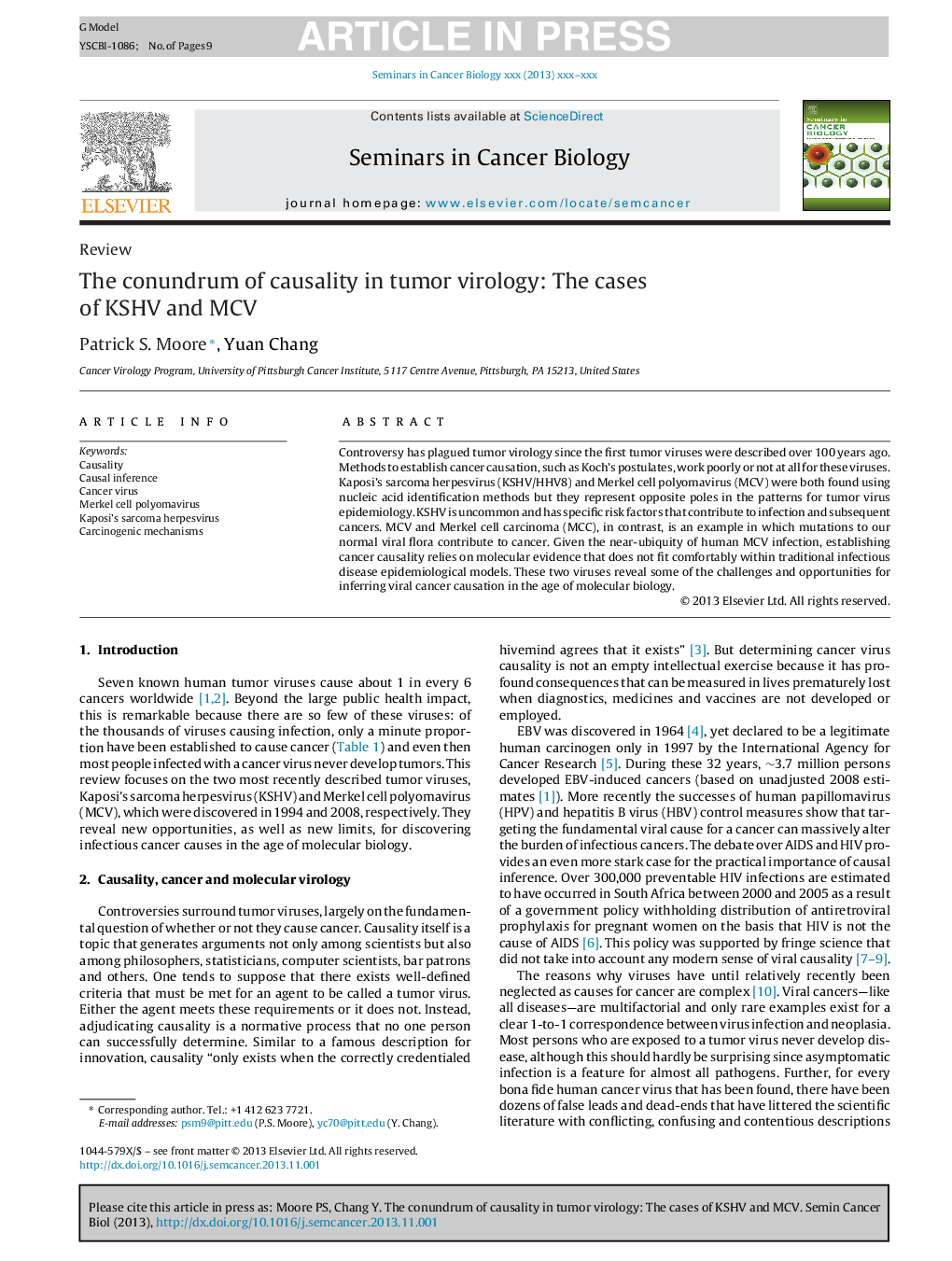| Article ID | Journal | Published Year | Pages | File Type |
|---|---|---|---|---|
| 8362351 | Seminars in Cancer Biology | 2014 | 9 Pages |
Abstract
Controversy has plagued tumor virology since the first tumor viruses were described over 100 years ago. Methods to establish cancer causation, such as Koch's postulates, work poorly or not at all for these viruses. Kaposi's sarcoma herpesvirus (KSHV/HHV8) and Merkel cell polyomavirus (MCV) were both found using nucleic acid identification methods but they represent opposite poles in the patterns for tumor virus epidemiology. KSHV is uncommon and has specific risk factors that contribute to infection and subsequent cancers. MCV and Merkel cell carcinoma (MCC), in contrast, is an example in which mutations to our normal viral flora contribute to cancer. Given the near-ubiquity of human MCV infection, establishing cancer causality relies on molecular evidence that does not fit comfortably within traditional infectious disease epidemiological models. These two viruses reveal some of the challenges and opportunities for inferring viral cancer causation in the age of molecular biology.
Related Topics
Life Sciences
Biochemistry, Genetics and Molecular Biology
Biochemistry
Authors
Patrick S. Moore, Yuan Chang,
